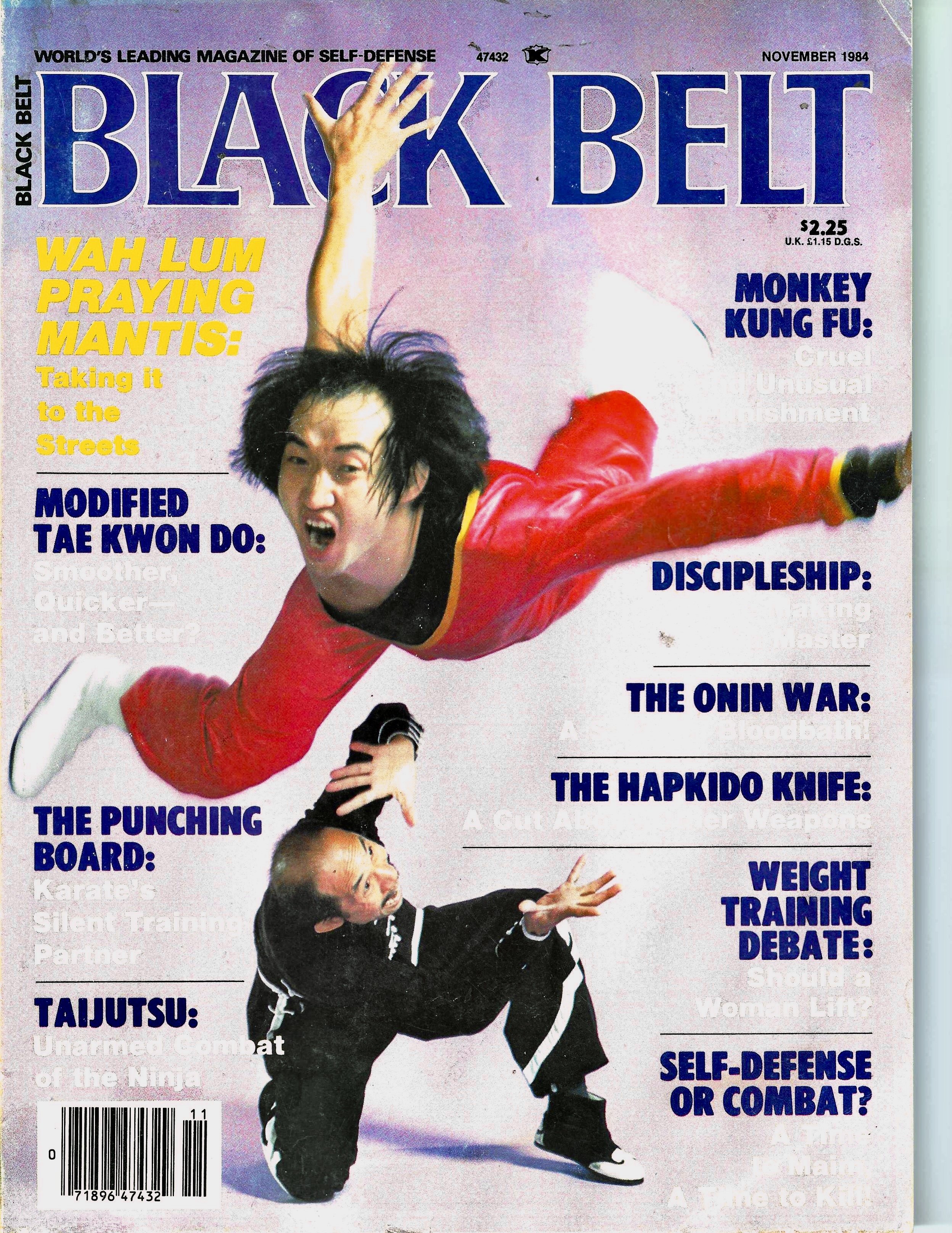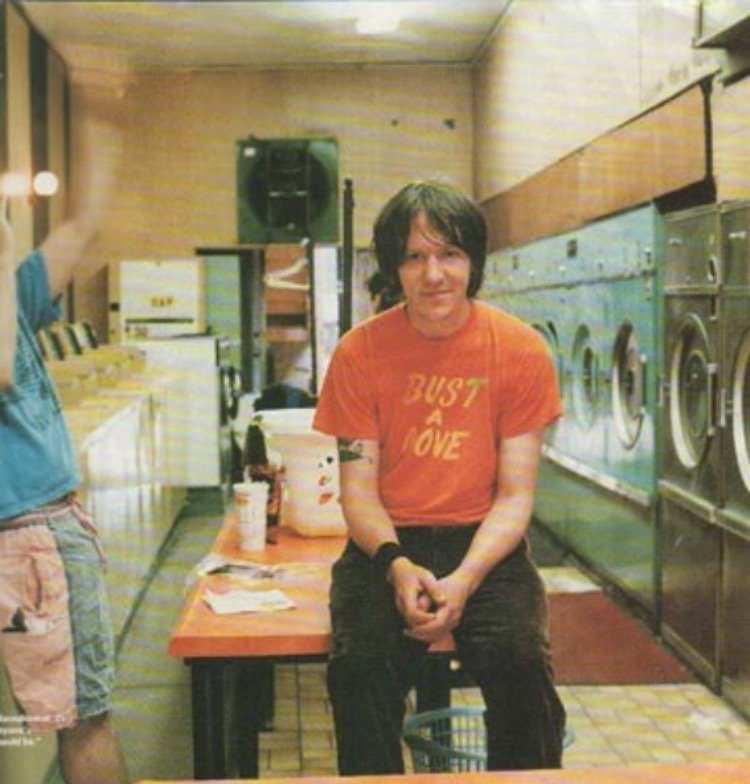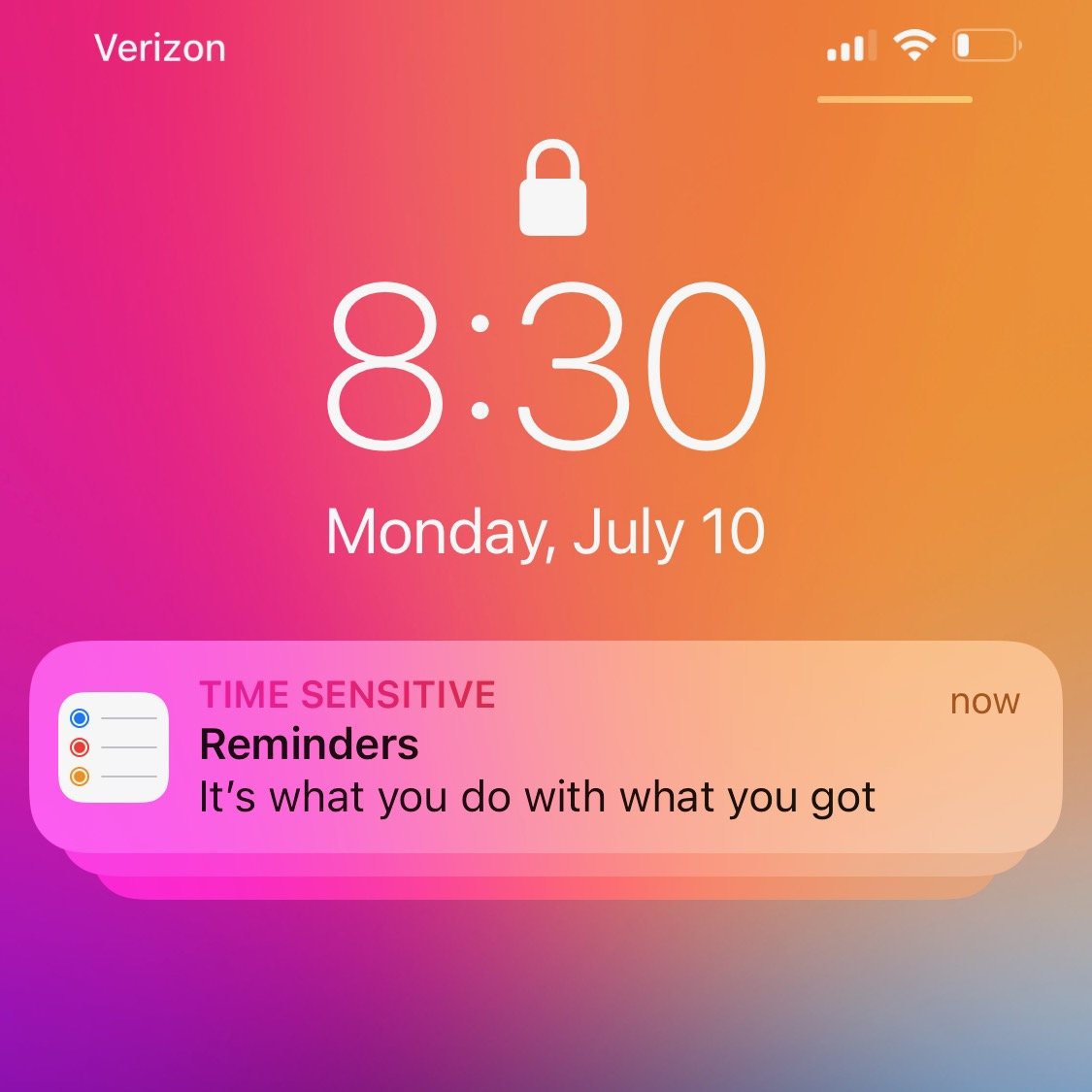Creativity + Confidence
Dad on the cover of Black Belt, 1984
When you hear the word confidence, what comes to mind? I think of Victoria’s Secret Angels gazing from their black and white portraits beyond the windows at the mall. Carrie Bradshaw stepping out of her brownstone in colorful, eclectic outfits. Cats from various neighborhoods I’ve lived in sunbathing on the sidewalk like they own it. RuPaul. Obi-Wan Kenobi waving his hand at a pair of Storm Troopers, These aren’t the droids you’re looking for. And, among these cliches, my father.
If you ran into my dad at, say, the grocery store, or a backyard cook-out, or a wedding, you would know within five minutes he was a martial arts teacher. He’d shake your hand and learn your name, ask about what you do, then put up his hands to shadowbox you or demonstrate a qi gong exercise and ask, “When are you going to come in and train?”
He walks into his favorite restaurants through the back door like a rockstar or a mob boss, shaking hands and joking with staff on his way to his table. I’ve never seen him turn down the chance to join a limbo contest—and I’ve never seen him lose one, either. He’s like James Brown, doing splits on the dance floor at parties. He has taken screenwriting and acting classes, played a villain in a kung fu movie, and collaborated with an opera company. His martial arts troupe performed in countless school performances and Lunar New Year banquets and for crowds of tourists on the cobblestone sidewalks outside Faneuil Hall. When he lived in Boston, it was rare to walk down the street with my dad and not run into one of his current or former students. After he moved to Missouri, he bought a pick-up truck and, with the contented sigh of a stoic cowboy, acknowledged, “Yup. I’m a real American now.”
He takes full advantage of the idea, if you don’t belong anywhere, you can belong everywhere, showing up as himself without apology in every room he walks into. If he was ever shy, insecure, or embarrassed, it would have been news to me. For me, on the other hand, I was growing up in a constant state of mortification and wanted nothing else than to just be “normal.” My dad’s antics did not help the matter. It wasn’t until I went to art school and was put in daily situations that helped me build my own creative confidence that I began to appreciate my dad. My approach to art and entrepreneurship in large part follows his model.
Confidence is a strange aspect of creativity: it’s a skill that can be practiced and cultivated like goal setting or time management, but it’s also an emotion. So often, for me, confidence feels like a reward, something I’m only allowed to feel if a project goes well or I successfully achieve a goal. Or it feels like a project’s success is only possible if I’m confident—which makes confidence as elusive as it is necessary. When I reflect on the ebb and flow of when I’ve felt confident, and the qualities that made that feeling possible, it includes some of these lessons and habits:
You Are Your First Audience, Make Yourself Happy
One evening when I was in college, I was in an Elliott Smith deep dive, reading all his online interviews, and came across his suggestion (I don’t remember the exact quote), that if he wrote a song that he enjoyed, then one person would be happy. Elliott Smith went to the school that I was attending, Hampshire College, where all the students designed our own majors. I was confused as to how, in an environment where we were encouraged to be independent and embrace our individuality, I was overwhelmed with self-doubt. I held onto this reminder from Elliott Smith for the rest of my time at Hampshire, and it became a guiding principle as I approached my creative career. Example: When I began hosting Write Nite meet-ups, I wasn’t sure if anyone would show up. I told myself, I’ll go and write by myself, and if anyone else shows up, it’ll just be a bonus. There were nights when it was just me, and other nights when there were a dozen of us sitting around a table, writing at the local coffee shop. When you do what makes you happy, in a way that aligns with your values, it is easier to take risks in your art, and share your art enthusiastically with other people.
Prompt: Feels Like Me
But what if you don’t know what makes you happy? During the times when I’ve lacked confidence, my insecurities made me feel far from myself. I’ve had to keep learning that confidence isn’t about turning into someone else—an idol or an icon—but finding a path back to ourselves. In the January installment of Corinne Cunningham’s online serial on creativity, Paths Through The Year, she suggested a prompt, “What feels like me?” Since then, I’ve included it in my roster of daily journal prompts. What are the actions that help me feel like myself? When I return to myself, I can show up in the world, and my art, more confidently. Some of the things that feel like me include: journaling at the neighborhood cafe, my playlist of favorite songs, simple hoop earrings, and community art events.
Lower The Stakes
When I was 16-years-old, I climbed up the steps to the Boston Film/Video Foundation, a film non-profit tucked away between Stevie’s Pizza and recording studios on Boylston Street. I walked into the Program Director’s office without an appointment, and asked if I could enroll in the work study program. I had no money, but wanted to take their 4-week film course for teens, and was willing to do whatever odd jobs they might have in order to pay for the fees. The Program Director told me, “We don’t have a work study program.” Without missing a beat, I countered, “Why don’t you start one?” To my sheer delight, the Program Director smiled and said, “Okay, let’s do it.”
Sometimes, I think of that girl—the one who wore sailor pants and polyester shirts from the 70’s, roaming the city with her journals and Discman—and wonder how I ever had the nerve to ask an organization to create a role for me? Then I wonder, what happened to that girl? How do I make my way back to her? It was easy for her to take risks, because when she was 16, the worst that could happen was someone would say no. As I got older, failures, disappointments, or the basic challenges of managing resources as an adult with limited time and money made me risk averse. I’ve been reminding myself, as I work on projects outside my comfort zone, to lower the stakes to a simple, No.
Record Your Wins
Every 3 months, I pour myself a cup of coffee and gather my calendar and journals at the kitchen table to do a reflection. I make a list of everything that I accomplished that quarter, what worked well, what didn’t go as planned, what I learned, and what needs to happen next for my projects or creative practice. This exercise can help with goal setting and planning, but it’s also a simple way to gain perspective. It’s so easy to get caught up in the daily minutiae of making art—problem solving, channeling our skills to fulfill aspirations for a future that has yet to unfold. Finding time to record and reflect on your accomplishments—whatever feels like a win—can be a way to take pride in your effort, feel gratitude for your community or circumstances, build trust in the process, and gain confidence in yourself.
Reminder: “It’s what you do with what you got”
But sometimes the list of wins can be a reminder of how much I don’t feel like I’m on top of my game, or how far I feel from my goals. It can create an unhealthy comparison between my current circumstances and romanticized versions of my past selves. I combat these comparisons with a daily reminder on my phone:
Prioritize Fun
I launched the story subscription program as an experiment. My original plan was to get back into freelancing, but I started sharing work on Patreon—and was surprised that it was steadily growing an audience. As it grew, I started to feel a different kind of pressure than selling books or pitching stories to get another byline in my resume. Offering subscriptions was its own challenge, and parallel to the membership model from my dad’s kung fu school. I had my own sense of how he operated his business and why it was successful, but I chalked a lot of it up to luck or his personality. I decided to call him and ask, “How did you do it? How did you build a business out of your talent and passion—and do well enough to support a family?”
We sat on the phone for an hour. I took notes as he taught me about the sales funnel he used to engage prospective students, or the mindset he had to maintain in order to put himself and his business out there. He told me something that I could see when I was growing up, but never put words to as I watched him shadowbox a new friend with the same enthusiasm as when he performed for a crowd of tourists.
“We were just having fun.”
Dad at KC Zine Con, 2023



